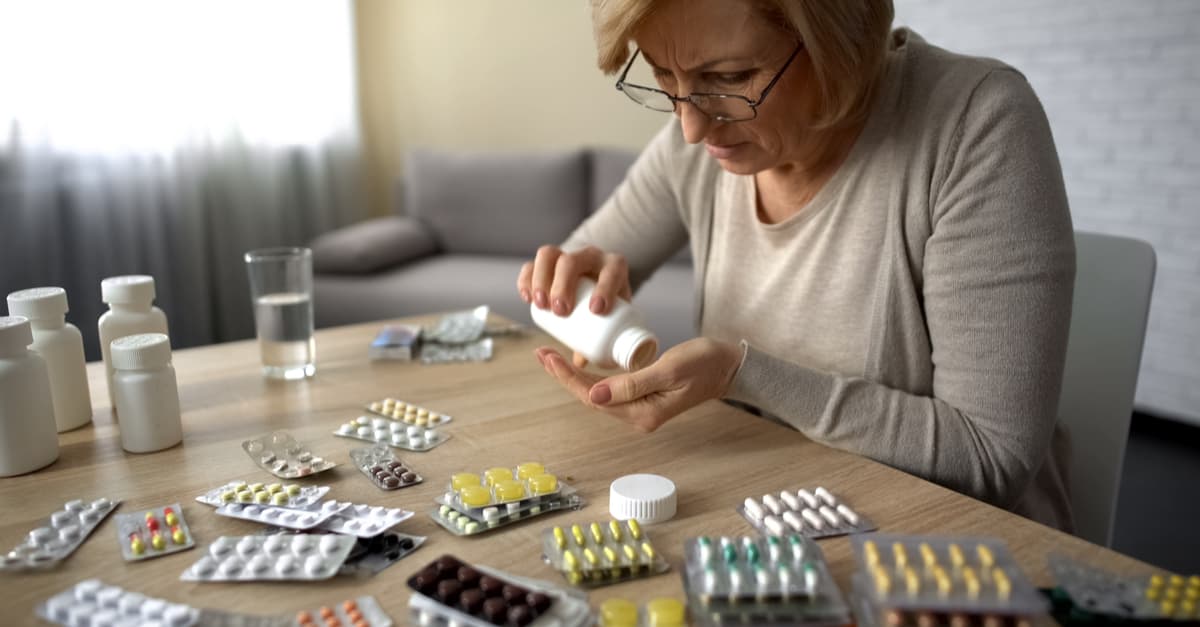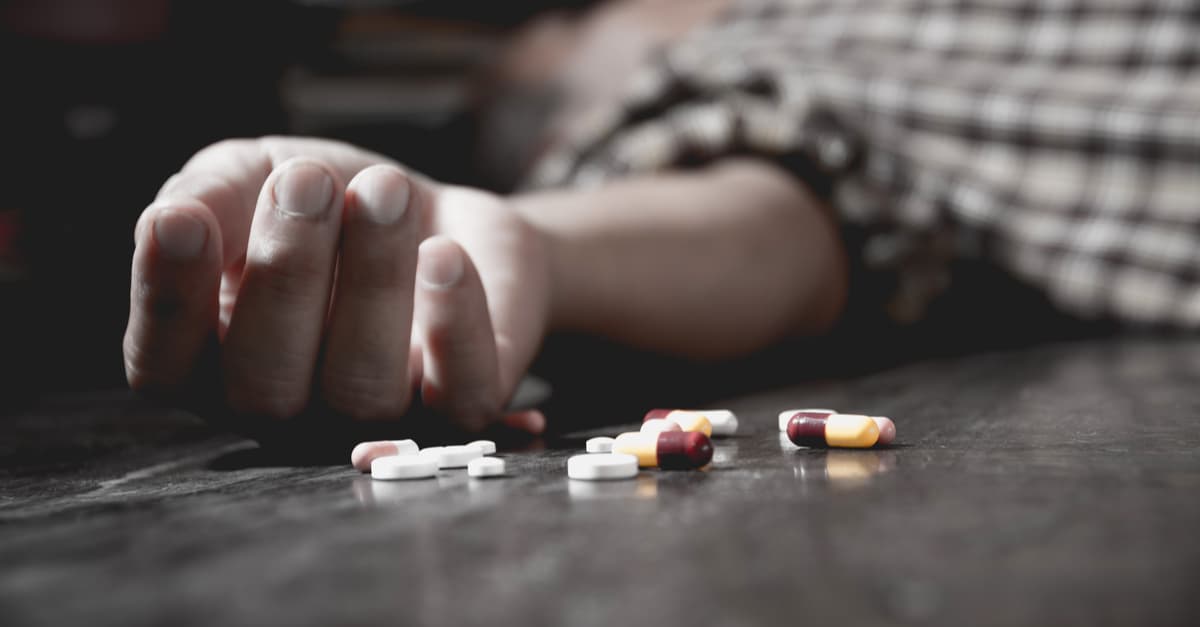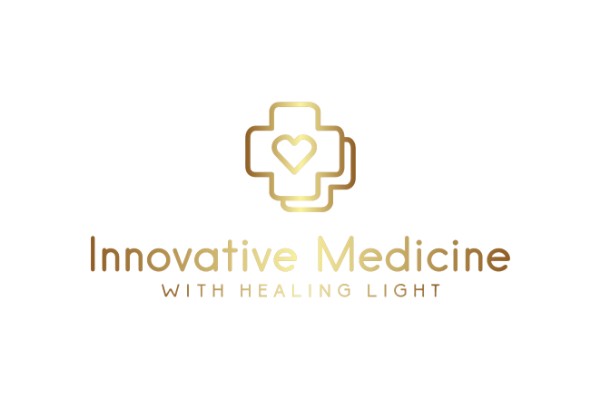How does Addiction to Prescription Medication Happen?

Addiction to prescription medication can happen due to intentional misuse of the drug, for example, where a person knows that a particular medication will give them the desired effects (such as sedating or giving a feeling of being ‘high’). This may mean that the person exaggerates or invents symptoms to obtain a prescription or access the drug another way by purchasing it illegally or using someone else’s medication. In other cases, people who have a legitimate reason to take a particular medication find that they become dependent on it. Addiction can happen gradually so that a person does not even realize that they are addicted for a long time.
What Type of Prescription Drugs Do People Become Addicted to?
A person may become dependent on any drug, but there are certain types of prescription medication that are more addictive. Stimulants, opioids (i.e., painkillers), sedatives, and anti-anxiety drugs are some of the most commonly prescribed drugs that people become addicted to.
Consequences of Addiction to Prescription Medication

An addiction to a prescription drug can be just as damaging as an addiction to an illegal drug. When a drug is misused, it causes harmful side effects. The specific side effects experiences depend on the drug that is being misused, but common side effects can include problems with blood pressure, breathing, cardiovascular issues, anxiety, cognitive and memory problems, depression, and seizures. There are many other side effects that can accompany an addiction to prescription medication.
One of the major risks of an addiction to prescription medication is that of overdose. As with many addictive substances (and indeed addictive behaviors), people often find that they need more and more of the substance or the buzz they get from a particular type of behavior in order to feel the ‘beneficial’ effects. For example, a person feels little effect from the prescribed dose of an opioid painkiller, so they take a little more. Or they begin taking an extra amount. In time, this too no longer has the desired effect. This can lead to a build-up of the drug in the person’s system, and they can overdose unintentionally. Other people suffering from an addiction to prescription medication become reliant on the drug to help them cope with life’s stresses and strains. So when something happens that they find particularly challenging to cope with, they may take a larger dose of the medication to help them manage. This can also result in an overdose.
Who is at Risk of Addiction to Prescription Medication?
Studying the incidence of addiction does show certain risk factors;
- History of addiction, including other substances such as alcohol.
- History of mental health issues / psychiatric conditions.
- Family history of addiction or substance abuse.
- Exposure to drug users in a peer group or family.
- Poor education on drug risks.
How Can I Reduce my Risks of Addiction to Prescription Medication?
It is very important that you take the medication that is prescribed to you. Not taking a drug because of fears of addiction is risky in itself. Instead, talk to the medical professional who has prescribed the medication so that you fully understand why you need the medicine and how you can reduce the risks. The best way to minimize the risks is to take the medication exactly as directed, and for only as long as your doctor says you need it.
Treatment for Addiction to Prescription Medications
It can be very hard for people who are suffering from prescription drug addiction to seek help. There is a strong tendency for people to hide the problem because they are afraid of the recovery process, or they don’t feel able to admit there is a problem. Treatment for this addiction comes down to two important elements; medication that helps with the side effects of withdrawal and behavioral therapy, which helps deal with the addiction’s underlying contributing factors and helps the sufferer understand the problem and build up strategic coping mechanisms. Coping techniques may include management of drug cravings, changing thought patterns, and developing strategies to avoid or reduce exposure to situations that may lead to drug use.
The Importance of a Support Network

The Importance of a Support Network
A support network is essential for recovery from any addiction, and addiction to prescription medications is no different. Whether this support comes from family members or friends or a team of professionals, it is important for the recovery process that the sufferer has support. Group therapy, support groups, set up to help people addicted to prescription drugs, and help in the form of online communities and telephone counseling can all be an important part of the recovery process. People who have suffered from addiction are at risk of relapse, so ongoing support is an excellent way to prevent this. The recovery process is very different for each individual. There is no set recovery time or procedure; it is so important that each case is treated individually according to the patient’s unique needs.
If you are concerned about your use of prescription or non-prescription drugs, or you are worried about someone you know, then seek help from your doctor or contact an addiction support charity or helpline. For more information, see the National Institute on Drug Abuse.
